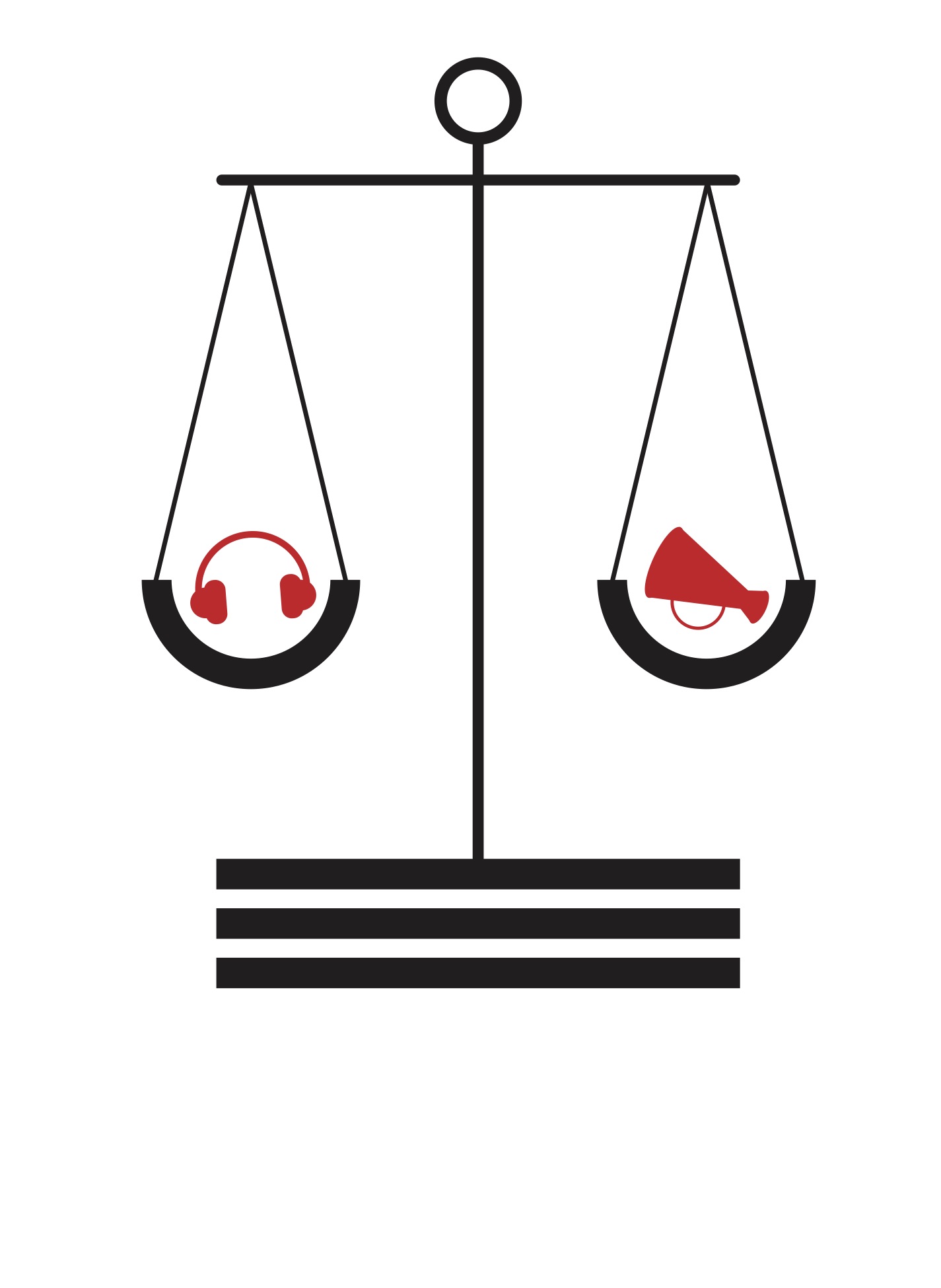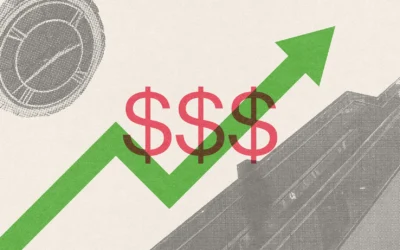It was a small thing — a smattering of lines halfway down on Sept. 11, 2019, MacEwan University newsletter on-campus life — but the Minister of Advanced Education’s mandated adoption of stand-alone freedom of expression policies by MacEwan, and all public Alberta post-secondary schools may yet become a very big thing indeed.
According to Section 2 of the Canadian Charter of Rights and Freedoms, freedom of expression is a “fundamental freedom” and is protected as such, except in instances where a free and democratic government may reasonably and justifiably infringe upon this freedom — such as in instances of hate speech or defamation. While individual provinces may have their own legislation, they cannot be in violation of the Charter, and so post-secondary schools in Alberta were (and still are) subject to these terms, regardless of whether they had official policies on freedom of expression on campus or not.
That’s where things get interesting.
While not outrageously controversial, the Minister’s request for the drafting of these policies was met with raised eyebrows over its redundancy, especially given that many post-secondary schools already had freedom of expression policies in place. What many of them did not have, however, and which the Minister very much wanted to see incorporated into their policies, were the Chicago Principles.
In 2014, the University of Chicago responded to an increase in student-led protests and activism aimed at preventing various figures from making speeches on campus by presenting the Report of the Committee on Freedom of Expression, now more colloquially known as the Chicago Principles. The report declares that “it is not the proper role of the University to attempt to shield individuals from ideas and opinions they find unwelcome, disagreeable, or even deeply offensive,” and that
“The University’s fundamental commitment is to the principle that debate or deliberation may not be suppressed because the ideas put forth are thought by some or even by most members of the University community to be offensive, unwise, immoral, or wrong-headed.”
The Chicago Principles’ answer to any conflict which may arise when a campus encounters such offensive, unwise, immoral, or wrong-headed ideas is for the affected individuals to engage in “debate and deliberation,” but that “they may not obstruct or otherwise interfere” with the expression of these ideas, except where the overall function of the university is disrupted.
This places the responsibility of discrediting offensive or wrong-headed ideas solely on the shoulders of students and staff, in the moment that they encounter the ideas. These same students and staff are then simultaneously responsible for justifying and proving their rebuttals to the individual or group they have entered into an argument with.
So what, you say. That’s how debate works.
It is, but the question of what constitutes a disruption of ordinary activities of the institution is less clear-cut. A university’s official function, obviously, is to educate. But MacEwan’s new policy identifies the university as a “place of open enquiry”, where “individual members of the University community, and not MacEwan itself” are responsible for judging the validity of a position unless it violates the law.
If MacEwan cannot act as a judiciary body, who gets to decide when a position is considered to have passed or failed “test(ing) through scrutiny”?
Here is where it gets complicated.
A student in a class discussing the curvature of the earth may attempt to enter a debate with the professor because they believe the earth is flat, and the professor, if not also other students, may decry this student’s position and encourage them to reevaluate it. If the student insists on returning to this point, however, is the environment of “rigorous exchange” they create within the class at odds with MacEwan’s ordinary functions, or is any attempt to stop that debate considered an attempt to “shield the community from a full range of views,” which MacEwan’s new policy insists it does not seek to do?
Let’s expand on this hypothetical situation and say that instead of one student in a class, a large number of students — 500, perhaps — stage a protest on campus. It could be about any controversial issue: abortion rights, climate change, the superiority of cats over dogs, but regardless, they’re a substantial group of students. Protests, by their very nature, are disruptive. They are also a form of expression, and an accepted — if not expected — part of the post-secondary experience. Which does MacEwan, under this new policy, take most into consideration?
What if we throw in the second group of 500, these students protesting the original protest? Do we simply have an enormous debate on our hands or a serious disruption to university function? If a group of professors attempt to mediate or quell the protests, are they returning an order to campus or can they be found in violation of MacEwan’s policy by interfering with their students’ freedom of expression? If the latter, the policy states that disciplinary action “up to and including dismissal of employment or expulsion” are possible outcomes.
The future will tell how MacEwan and the rest of Alberta’s post-secondary schools handle the legal ins and outs of their new policies.
In Ontario, where public universities and colleges were also directed by the provincial government to adopt the Chicago Principles, they’re handling things very carefully. Universities in that province were threatened with cuts to funding if they failed to comply, and may still face cuts if they fail to report on their progress, according to Global News.
Thankfully, in an email with Dr. Craig Monk, Provost and Vice-President, Academic of MacEwan, assurances were given that the drafting of MacEwan’s new policy “was in no way linked to grant allocation.”
Similarly, in a phone interview the Minister of Advanced Education, Demetrios Nicolaides, said that he was “confident (Albertan) institutions have already demonstrated their commitment to free expression” and when asked if he could foresee any need or reason to follow Ontario’s withdrawal of funding, the Minister said: “Not at this time.”
“Protecting free expression does not solve all of the
problems a university faces and, indeed, in some
circumstances, it can exacerbate other problems.”
— Geoffrey Stone, professor, University of Chicago Law School
Our budget might have been slashed, but at least we know it isn’t because of this. Yet.
With or without the threat of funding cuts, the Alberta and Ontario government mandates now mean that more schools in Canada have been required to adopt the Chicago Principles than those which have voluntarily adopted them in the United States, according to Maclean’s. This seems a little strange, given that the Chicago Principles weren’t developed with Canadian law in mind.
Strangest of all, though, is how this policy change might improve MacEwan’s results in the 2020 Campus Freedom Index (CFI). If you haven’t heard of the CFI, it’s a measurement of Canadian university campuses drawn up by the Justice Centre for Constitutional Freedoms (JCCF). If you’ve also never heard of the JCCF, it promotes itself as a “voice for freedom in Canada’s courtrooms.” John Carpay is the president of the JCCF. You might remember him. He’s the UCP member who compared pride flags to swastikas back in November of 2018, according to the CBC. Other notable members include Lindsay Shepherd, and Jay Cameron, who has represented the student group UAlberta Pro-Life throughout their legal battle with the University of Alberta, according to an article in the Edmonton Journal.
Apparently the CFI has been published annually since 2011, but only results from 2017 through to 2019 are currently available on their website. The index takes into account University Policies, University Practices, Student Union Policies, and Student Union Practices when calculating its grades, and it has not been kind to MacEwan.
Over the last three years, our Student Union Policies have consistently been awarded an F grade, and though 2019 saw our University Policies claw their way to a C from two consecutive Ds, we’re still listed on their website under The Flunk List. As students, we know how much a poor grade sucks, but why should the new Freedom of Expression policy make a difference?
The new policy now satisfies the first factor that the CFI takes into consideration when grading: “the university has a clear and unequivocal commitment to free speech on campus.” We might get half a point for the second factor: “the university has no express or implied ‘speech code’ that prohibits or restricts speech on grounds of it being ‘offensive,’ ‘discriminatory,’ ‘disrespectful,’
‘inappropriate,’ ‘triggering,’ a ‘micro-aggression,’ etc.” as the free expression policy makes clear such speech will not be restricted, but a full point is unlikely unless MacEwan disavows any of its “so-called ‘safe spaces’ where speech is restricted.”
The third factor listed in CFI’s grading methodology is where we probably won’t ever score any points: “The university does not provide funding or other resources to groups, departments, committees, commissions or other bodies that engage in ideological advocacy (e.g. promotion of vague and ambiguous concepts such as ‘diversity,’ and ‘inclusion’).” How is freedom of speech at odds with promoting or supporting diversity or inclusion, you ask? It might be that a passing grade from the CFI isn’t something MacEwan will want to strive for, after all.
While a Charter right and therefore something that is supposed to apply to all Canadians, regardless of political creed, sexual orientation, race, or religion, freedom of expression — and its limitations — has been and continues to be in a regular state of reexamination since the Charter was first written in 1982. The shoe-horning of the Chicago Principles into free expression policies in post-secondary institutions is yet another iteration of this, though it smacks of politicization, as well. For some students, their concern with the new policies is that the rhetoric surrounding the principles’ adoption will embolden negative statements and actions towards already marginalized groups, as per the Edmonton Journal.
Ultimately, there will inevitably be those who exercise their right more than others, and there will be those who continue to feel that the freedom of their expression is restricted by the response of those around them. As Geoffrey Stone, the law professor who led the drafting of the Chicago Principles notes in an email to The Chicago Maroon: “…although protecting free expression is essential for a university, protecting free expression does not solve all of the problems a university faces and, indeed, in some circumstances, it can exacerbate other problems.”





0 Comments